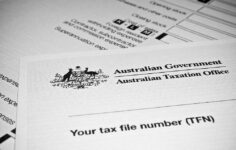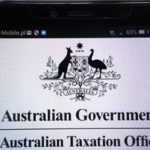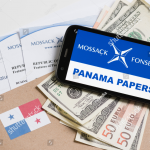The Offence of Conspiracy to Defraud the Commonwealth

It’s a trial with all the hallmarks of a great blockbuster movie.
Two siblings, Adam and Lauren Cranston, whose father is the former deputy commissioner of the Australian Taxation Office (ATO), along with lawyer Dev Menon and referrer Jay Onley, are on trial after pleading not guilty to being involved in scheme that defrauded the Commonwealth of more than $105 million between March 2014 and May 2017.
Over a dozen charged
More than a dozen people were charged in relation to the alleged tax fraud in 2017, and four have already been sentenced for their involvement in the scheme.
Authorities have described the operation as one of the nation’s largest corporate crimes, involving legitimate payroll claims being accepted through company Plutus Payroll, before the money was funnelled to second-tier companies, allegedly rorting millions from the ATO by withholding PAYG tax.
But there’s a twist, with allegations that syndicate member Daniel Hausmann recruited journalist Stephen Barrett in an attempt to blackmail the others to the tune of $25 million.
Four convicted and sentenced
Four members of the syndicate have already been convicted and sentenced over their involvement.
These include ‘back office’ worker Devyn Hammond, who was sentenced to four years behind bars for her involvement and former general manager of Plutus Payroll, Joshua Kitson, who was given a three year non-parole last year for concealing the fraud from staff members and serving as a “mole” for the remaining conspirators.
Also sentenced were Aaron Paul, who was given a two year non-parole for money laundering, and accountant Paul O’Leary, was sentenced to two years and three months for negligently dealing with proceeds of crime amounting to more than $1 million.
Threats and blackmail
According to documents tendered in the NSW Supreme Court, Adam Cranston threatened Daniel Hausman with a rifle and sent him “upsetting” anti-Semitic emails about the death of a Jewish women in the Holocaust.
The details have been brought to light after Mr Hausman entered a entered a plea of guilty plea and agreed to a set of facts to be tendered before the court, which outlined how he recruited Mr Barrett to help blackmail the syndicate.
The agreed facts also state that Daniel Rostankovski, aka “Big D”, threatened syndicate members by saying that members of the Comancheros motorcycle club were “waiting downstairs … to come and belt the fuck out of you guys”.
The facts say that Mr Hausman and Mr Rostankovski played leading roles in blackmailing the syndicate, by threatening media exposure and reputational damage.
Complex and lengthy
The trial is continuing, with Adam and Lauren Cranston yet to take the stand.
Adam and Lauren’s father, former ATO deputy commissioner Michael Cranston, resigned from the office one month after his children were charged.
A jury in the District Court of NSW acquitted Michael Cranston of misusing his role to assist his children.
The Charges
Adam and Lauren Cranston are charged with conspiracy to defraud the Commonwealth and dealing with proceeds of crime amounting more than 1 million, among other offences.
Conspiracy to defraud the Commonwealth: section 135.4 Criminal Code Act 1995
Offences relating to conspiring to defraud the Commonwealth are contained in 135.4 of the Criminal Code Act 1995 (Cth) which carries a maximum penalty of 10 years in prison.
Conspiracy to defraud by obtaining a gain
Conspiracy to defraud by obtaining a gain is an offence under Sections 135.4(1) of the Criminal Code Act 1995 (Cth) which carries a maximum penalty of 10 years in prison.
To establish the offence, the prosecution must prove beyond reasonable doubt that:
- You conspired with another person with the intention to obtain a gain,
- You did so dishonestly, and
- The gain was from a Commonwealth entity.
The prosecution does not need to prove you knew the gain was from a Commonwealth entity or that the proposed act was possible to commit.
However, it does need to prove that:
- You entered into an agreement with at least one person,
- You intended to carry out an act under that agreement, and
- You committed an overt act under that agreement.
Duress is a defence to the charge.
Conspiracy to defraud by causing a loss
Conspiracy to defraud by causing a loss is an offence under Sections 135.4(3) of the Criminal Code Act 1995 (Cth) which carries a maximum penalty of 10 years in prison.
To establish the offence, the prosecution must prove beyond reasonable doubt that:
- You conspired with another person with the intention to cause a loss,
- You did so dishonestly, and
- The loss was to a Commonwealth entity.
Again, the prosecution does not need to prove that you knew the loss was to a Commonwealth entity or that the proposed act was possible to commit.
Again, the prosecution does have to prove that:
- You entered into an agreement with at least one person,
- You intended to carry out an act under that agreement, and
- You committed an overt act under that agreement.
Duress is also a defence to this charge.
Conspiracy to defraud by dishonestly causing a loss or risk of loss
Conspiracy to defraud by dishonestly causing a loss or risk of loss is an offence under Sections 135.4(5) of the Criminal Code Act 1995 (Cth) which carries a maximum penalty of 10 years in prison.
To establish the offence, the prosecution must prove beyond reasonable doubt that:
- You conspired with another to cause a loss or create a risk of loss,
- You knew or believed the loss or risk of loss would occur, or that there was a substantial risk of loss occurring,
- You acted dishonestly, and
- The loss or risk of loss was to a Commonwealth entity.
Once again, the prosecution does not need to prove that you knew the loss or risk of loss was to a Commonwealth entity or that the proposed act was possible to commit.
And again, the prosecution is required to prove that:
- You entered into an agreement with at least one person,
- You intended to carry out an act under that agreement, and
- You committed an overt act under that agreement.
Conspiracy to defraud by influencing a public official
Conspiracy to defraud by influencing a public official is an offence under Section 135.4(7) of the Criminal Code Act 1995 (Cth) which carries a maximum penalty of 10 years in prison.
To establish the offence, the prosecution must prove beyond reasonable doubt that:
- You conspired with another person with the intention to influence a public official in the exercise of their duties,
- You did so dishonestly,
- The official was a Commonwealth public official, and
- The duties were those of a Commonwealth public official.
The prosecution does not need to prove that you knew the official was a Commonwealth public official, or that the duties were those of a Commonwealth public official or that the proposed act was possible to commit.
Once again, the prosecution has to prove that:
- You entered into an agreement with at least one person
- You intended to carry out an act under that agreement, and
- You committed an overt act under that agreement
Going to court for conspiring to defraud the Commonwealth?
If you are suspected of, or have been charged with conspiring to defraud the Commonwealth, call Sydney Criminal Lawyers anytime on (02) 9261 8881 to arrange a conference with a legal team that is vastly experienced in defending and winning Commonwealth offences.
Receive all of our articles weekly
Related Articles
RELATED LEGISLATION
- Section 135.4 Criminal Code Act 1995 | Conspiracy to Defraud
- Section 135.4(1) Criminal Code Act 1995 | Conspiracy to Defraud Obtaining a Gain
- Section 135.4(3) Criminal Code Act 1995 | Conspiring to Dishonestly Cause a Loss
- Section 135.4(5) Criminal Code Act 1995 | Conspiracy to Defraud – Dishonestly Causing a Loss or Risk of Loss
- Section 135.4(7) Criminal Code Act 1995 | Dishonestly Conspiring to Influence Public Official








